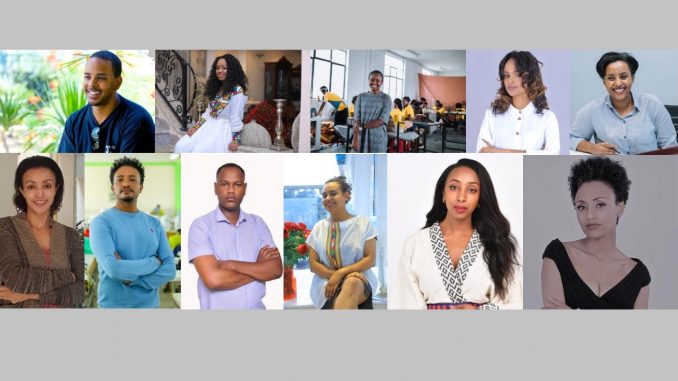
The six-month Rescuing Enterprises through Production Repurposing Program will enable SMEs to continue running their businesses and avoid having to retrench their employees
ADDIS ABABA (Mastercard Foundation) – Mastercard Foundation has announced a partnership with a consortium of 11 small and medium enterprises (SMEs) in Ethiopia to repurpose their factories to manufacture personal protective equipment (PPE) in the fight against COVID-19.
Mastercard Foundation will commit more than USD 3.2 million from the Mastercard Foundation COVID-19 Recovery and Resilience Program which was created specifically to assist institutions and communities in Africa to withstand and respond to the short-term impacts of this pandemic, while strengthening their resilience in the long-run.
The six-month Rescuing Enterprises Through Production Repurposing Program will enable the 11 SMEs to continue running their businesses and avoid having to retrench their 1,060 employees, the majority being young women. The contribution from the Mastercard Foundation will support the repurposing of factories and basic textile machines, as well as renting unused equipment to manufacture protective equipment for health care workers and masks for the general public. The SMEs within the consortium are: Enzi Shoes, FIF Trading PLC, Gaber Textiles, Habte Garment, Kabana Leather, Kootekett Leather, Mafi, Meron Addis Abeba, Sadula Business PLC, The Look Interiors, and Yefikir.
“In Ethiopia, like in many developing economies, SMEs make a significant contribution to local employment and to the overall gross domestic product through their exports. An economic downturn due to COVID-19, to which SMEs are especially vulnerable, hits developing economies at their heart. With small reserves and limited working capital, many SMEs would struggle to survive a prolonged period of reduced economic activity, so the timing of this partnership is critical,” said Alemayehu Konde Koira, Country Head, Ethiopia, at the Mastercard Foundation.
The program will also include the onboarding of an eCommerce marketplace to enable the SMEs to sell their products online which negates the impact of social distancing while increasing their and resilience in the long-term. Kifiya Financial Technologies, an existing Mastercard Foundation partner, will lead the management of the fund; and provide the online platform and business support at no cost to the SMEs.
“We are excited to be able to extend our partnership with the Mastercard Foundation to enable SMEs to access markets and credit, if needed, through leveraging our eCommerce, eDelivery, and digital payment technologies. It is evident from this program that the Foundation’s strategy is comprehensive in its approach to match immediate challenges with long-term opportunities. The SMEs are equally excited at the prospect of being able to repurpose while transitioning to improved digital capabilities,” said Munir Duri, CEO and Founder, at Kifiya Financial Technologies.
The partnership has created a platform for strong collaboration between the SMEs consortium and is providing an opportunity for the companies to remain agile during these unprecedented times and to emerge resilient.
“We would have eventually had to close our doors, were it not for this program. Like most SMEs in Ethiopia, COVID-19 has severely impacted our business as our revenues are mostly generated from exporting, which was shut down in March. We are empowered and excited to be participating in the fight against the COVID-19 pandemic,” said Semhal Guesh, CEO of Kabana Leather and Chair of the consortium.
Partnership with Africa Centres for Disease Control and Prevention
The Mastercard Foundation is also responding to COVID-19 on a continental level. On June 4, 2020 the Foundation announced its partnership with Africa Centres for Disease Control and Prevention (Africa CDC). Through its COVID-19 Recovery and Resilience Program, the Mastercard Foundation is committing US$40 million to the Africa CDC’s Partnership to Accelerate COVID-19 Testing (PACT). These funds will be used to purchase 1 million test kits, as well as train and deploy 10,000 community healthcare workers and 80 surveillance rapid responders to support contact tracing as well as strengthen the Africa CDC’s capacity to oversee a continental response to the pandemic.
